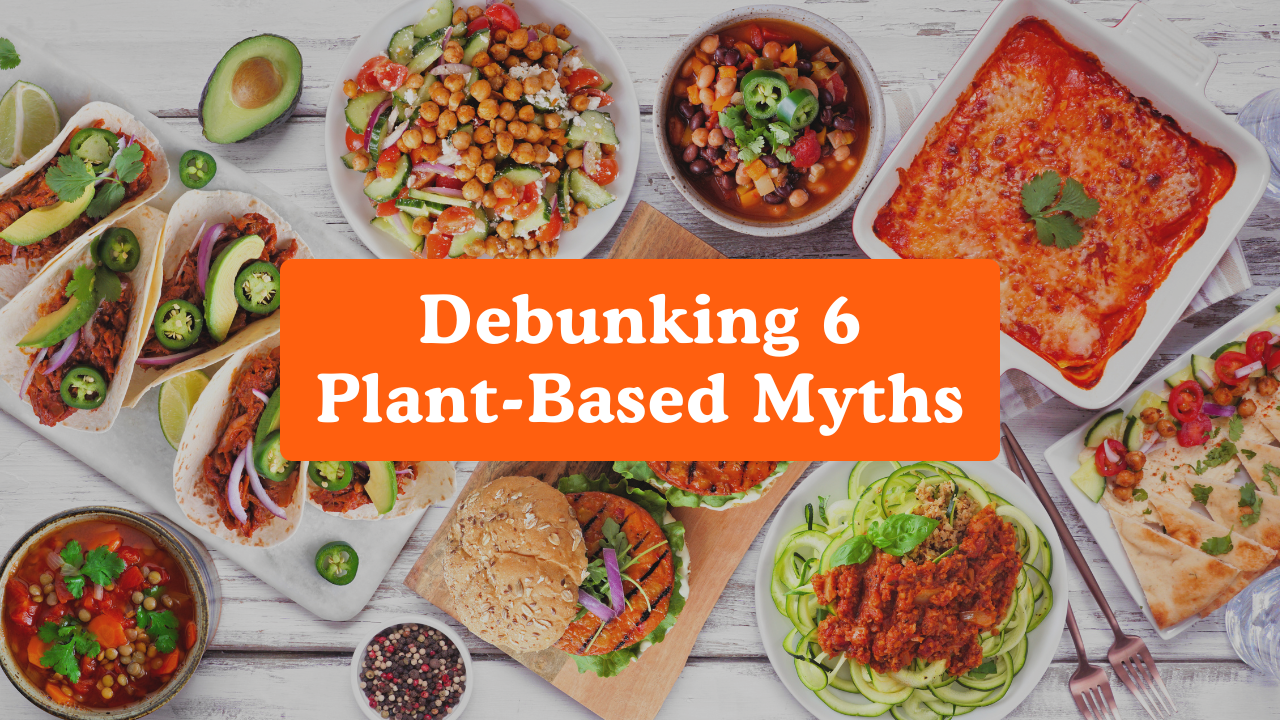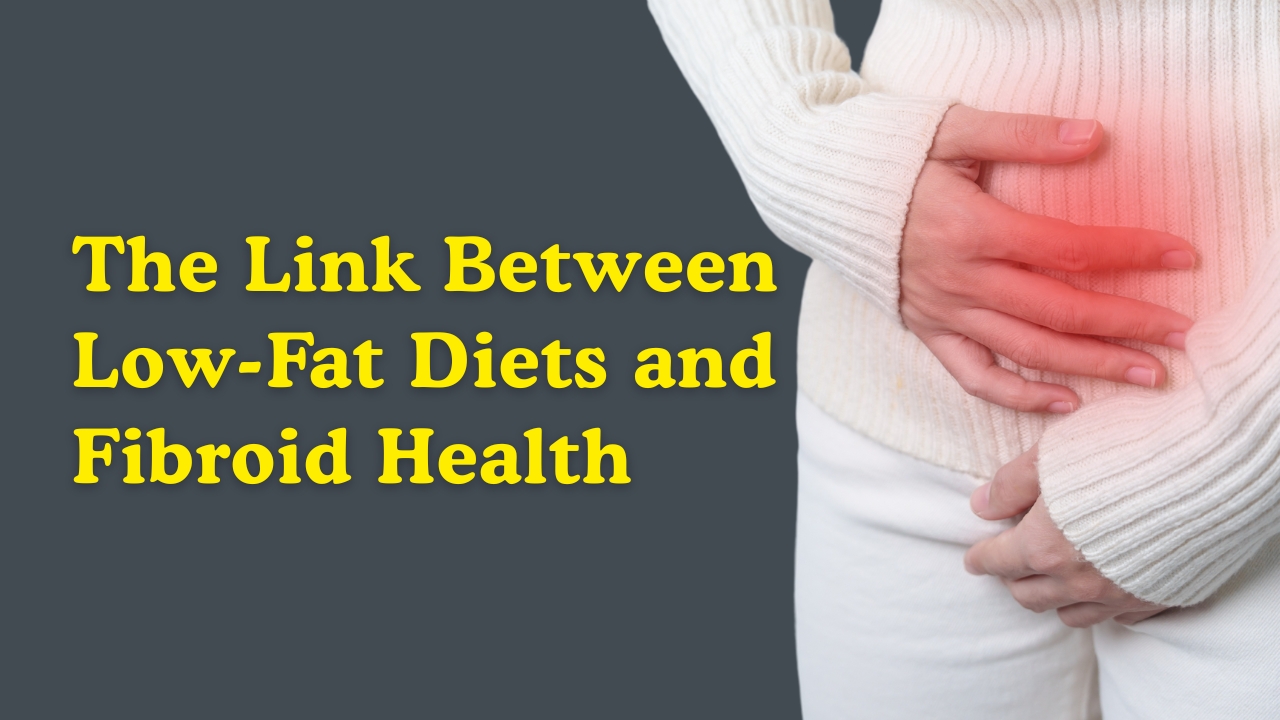If you’ve embraced a plant-based lifestyle (or are considering it) in the hopes of feeling more energetic, living longer, and aging vibrantly then you’re in the right place.
Many people turn to plant-based eating to improve their health, only to find themselves tired, moody, nutrient-deficient, or even gaining unwanted weight. The problem? It’s not the lifestyle, it’s the myths about plant-based eating that can quietly sabotage your success.
Let’s bust those myths wide open.
The Problem: Plant-Based Confusion is Real
The plant-based movement has grown rapidly — and with it, so has misinformation. Social media influencers, conflicting advice, and flashy food packaging can make it hard to know what’s actually healthy.
Here’s why it matters:
- Nutrient deficiencies such as Vitamin B12, iron, or protein can sneak up quickly.
- You might feel low on energy, mentally foggy, or emotionally off.
- If your results aren’t matching your efforts, it’s easy to feel discouraged and quit altogether.
- Worse, these issues can prevent you from experiencing the incredible true benefits of plant-based living — like disease prevention, hormonal balance, and graceful aging.
Let’s break down the biggest myths standing between you and your healthiest self.
Myth 1: “Plant-Based Means Just Eating Salads”
Reality:
A healthy plant-based diet is much more than a plate of leafy greens. While salads are great, they’re just one piece of a much bigger picture.
A nourishing plant-based lifestyle includes:
- Whole grains (such as brown rice, oats, quinoa)
- Legumes (including lentils, black beans, chickpeas)
- Healthy fats (think: avocado, olive oil, nuts, seeds)
- Fruits and vegetables of every color
- Flavorful herbs and spices
The Risk:
Relying only on salads can lead to low calorie intake, nutrient deficiencies, and hormonal imbalances — especially for active women or those in midlife.
Takeaway:
Eat a full, balanced plate. A colorful grain bowl with beans, roasted veggies, tahini dressing, and seeds will serve your body far better than a bare spinach salad.
Myth 2: “You Can’t Get Enough Protein on a Plant-Based Diet”
Reality:
You absolutely can meet (no pun intended)— and even exceed — your protein needs with plants. Key sources include:
- Lentils, chickpeas, and black beans
- Tofu, tempeh, and edamame
- Quinoa and buckwheat (complete proteins!)
- Hemp seeds, chia seeds, and almonds
Quick Tip:
Mix it up. Protein diversity matters more than obsessing over one source (like soy). A variety ensures you get all essential amino acids over the course of the day.
Research Says:
A study published in Nutrients confirms that well-planned vegetarian and vegan diets can meet protein needs across all life stages — including athletes and older adults.
Myth 3: “Plant-Based Eating Is Automatically Healthy”
Reality:
A food labeled “vegan” or “plant-based” isn’t automatically good for you. Packaged cookies, frozen pizzas, vegan ice cream — while animal-free — can still be loaded with:
- Refined sugars
- Saturated fats
- Processed oils
- Sodium and preservatives
The Risk:
It’s possible to be fully plant-based and still struggle with weight gain, insulin resistance, or high cholesterol if your meals are mostly ultra-processed.
Takeaway:
Focus on whole plant foods at least 80–90% of the time. Think: roasted sweet potatoes, sautéed greens, lentil stews, and hearty grain bowls.
Myth 4: “Carbs Are Bad for You”
Reality:
Let’s set the record straight: complex carbs are your friend. They fuel your:
- Brain
- Hormones
- Muscles
- Mood
Examples include:
- Oats
- Brown rice
- Quinoa
- Sweet potatoes
- Legumes
The Risk:
Cutting carbs can lead to fatigue, poor focus, and even increased cortisol (stress hormone) — especially for women in midlife.
Backed by Science:
Populations in Blue Zones — regions with the longest-living people — eat mostly carbohydrate-rich plant foods like beans, yams, and whole grains.
Myth 5: “If It’s Vegan, It’s Automatically Nutrient-Dense”
Reality:
Not quite. Some nutrients require more intention on a plant-based diet. Common shortfalls include:
- Vitamin B12
- Iron (especially heme iron found in meat)
- Omega-3s (especially EPA/DHA)
- Zinc
- Vitamin D
The Solution:
- Eat fortified foods (such as Vitamin B12-fortified plant milks)
- Pair iron-rich foods (like lentils or spinach) with vitamin C (found in citrus fruits and bell peppers) to enhance absorption
Myth 6: “Plant-Based Eating Is Too Complicated and Expensive”
Reality:
Plant-based living doesn’t have to break the bank or take hours in the kitchen.
Pro Tips to Save Time and Money:
- Batch cook lentils, grains, and roasted veggies on Sundays
- Buy dry beans and whole grains in bulk
- Use frozen fruits and veggies — just as nutritious and longer-lasting than fresh
- Learn a few go-to meals (like stir-fry, chili, or tacos) and rotate them
Bonus:
Plants are some of the most affordable sources of nutrition when planned well. Beans, oats, bananas, potatoes — all budget-friendly staples!
Why These Myths Matter So Much
Health Impact:
Misunderstanding plant-based eating can lead to:
- Fatigue
- Mood swings
- Brain fog
- Digestive issues
- Nutrient deficiencies
- Frustration with slow (or no) results
Mindset Impact:
When people don’t feel better quickly, they assume the lifestyle “doesn’t work” and abandon it altogether, missing out on long-term gains.
Longevity Impact:
Done right, plant-based living reduces the risk of chronic diseases like:
- Heart disease
- Type 2 diabetes
- Certain cancers
- Cognitive decline
But to see those benefits, your nutrition needs to be intentional.
How to Truly Thrive on a Plant-Based Diet
If you’re ready to feel vibrant, energized, and well-nourished — here’s your success checklist:
Eat the Rainbow
Include fruits, vegetables, legumes, whole grains, nuts, and seeds daily. Each color offers different protective nutrients.
Prioritize Protein
Aim for a plant protein source at every meal. Try:
- Breakfast: Overnight oats with chia and hemp seeds
- Lunch: Quinoa salad with edamame and roasted chickpeas
- Dinner: Lentil stew with whole grain toast
Go for Whole Foods
Aim to eat foods close to their natural state most of the time — they nourish your body and mind.
Plan + Batch
Build a weekly rhythm. Make a big pot of beans, roast trays of veggies, and prep grains in bulk.
Stay Curious
Your body evolves. What you needed in your 30s might shift in your 50s. Stay tuned into your unique needs and continue learning.
The bottom line? Plant-based eating isn’t about perfection — it’s about intention.
When you move past the myths and embrace a thoughtful, well-rounded approach, you unlock the real power of plants to support your energy, mood, and longevity. You deserve to feel vibrant at every stage of life, and it is possible with the right tools, support, and a sprinkle of curiosity. 💚




